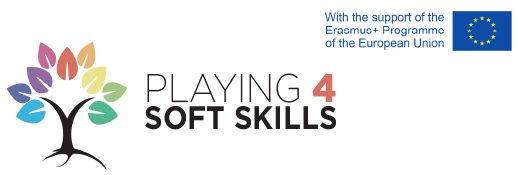How to interact with others? Should we become like them, or should we stay flexible and gracefully accept the fact that we differ?
There are many words that try to characterize our ability to find ourselves in various circumstances. One way is to “blend in”, or adopt so many characteristics of those around you that you become one of them. The other way is to be so versatile that you may be happy to be anywhere, but without changing who you are. So, adaptation and flexibility are important soft skills, but first we should “unpack” these terms to really understand what they mean. The question is how to apply them among the co-workers or within any group of people who interact: in a classroom, in a singing a capella group, in a sports team, in a squad of soldiers, or in a team of employees…
Adaptation

To adapt means to be able to find a “fit” of your own attributes to the environment around you, or to the social situation that you find yourself in. A Polish proverb says that if you happen to find yourself among the crows, you will caw like them. It implies that adapting is something expected and not at all unusual, because it makes our life easier. You do not want to stick out like a sore thumb. It may lead to ostracism or even aggression against you.
Woody Allen’s film “Zelig” illustrates the case at this end of the spectrum: Zelig was a guy who had a perfect ability to adapt so well to the people around him that talked like them and even looked like them. Mystique, one of Marvel’s X-Men characters is even better at adapting: as a mutant shape shifter she is able to change her appearance so completely that she becomes indistinguishable from the people she mimics. Both of these examples are, of course, not what we should mean by “adapting” as a soft skill.
Adapting means being ready to see that the views completely different from my own maybe, just maybe, are right and I should “adapt” to them or even “adopt” them as my own. Adapting means that I should modify my customs or rituals or the things I say if they happen to be offensive to others. The crucial point, however, is that adapting should not be fake. If you blend in, do so with full confidence that it reflects who you really are. Faking it is not a long-term strategy, because it will not bring others to trust you fully when they sense a lie underneath.
Flexibility

In contrast, flexibility is something else. I am flexible like Flexo, a Marvel robot made of rubber, or an “all-terrain” vehicle that we may send to explore the Martian surface. In extreme situations I do not stop being who I was, but I am “equipped” with such a broad repertoire of responses that nothing is challenging to me. In social situations, I can interact well with any kind of people, but I do not, however, become “one of them” nor do I pretend to be.
The “repertoire” may be composed of various skills that are specialized abilities to accomplish various goals. They may be acquired quickly through specific training or, like soft skills, built gradually (or absorbed), from childhood through adulthood. Like the cartoon character, inspector Gadget, I can then find the needed mechanical tool to solve any problem. When we describe someone as a “Renaissance” person it usually refers to that person’s broad spectrum of areas of expertise: a singer capable of performing classical music like Cecilia Bartoli, but also singing jazz like Marija Naumova, and flamenco like La Niña de los Peines (and even industrial metal, with Rammstein, who knows…). We should be equally flexible with our soft skills.
Who do you prefer to work with?
Do we prefer to interact with people who have adapted to us and behave like us, or with those who are so flexible that working with anybody (and even with us) is no problem? My advice is that it should not matter to us. The challenge is to create our social environment in such a way that we can build and cultivate trust without worrying if people around us show better or worse adaptation or better or worse flexibility. Only then can we call ourselves “citizens of the world”.

